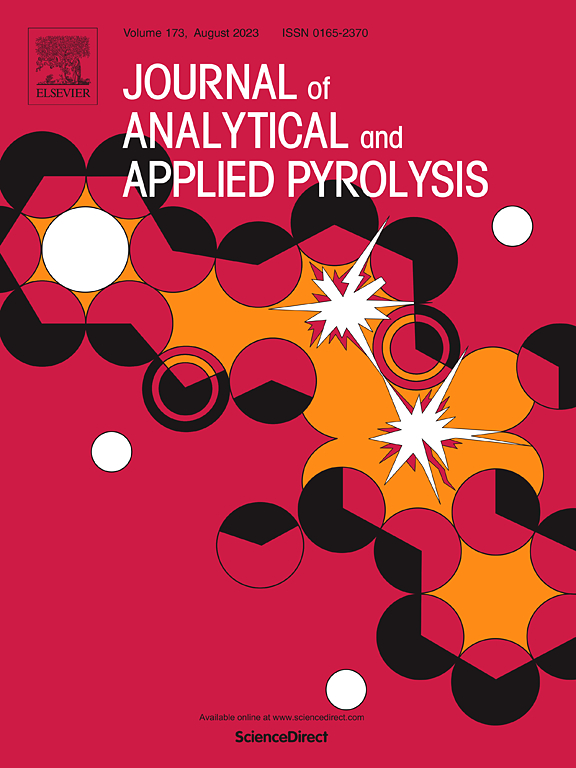Experimental study on feasibility of using delayed coking process for conversion of high acidic crude oil
IF 5.8
2区 化学
Q1 CHEMISTRY, ANALYTICAL
引用次数: 0
Abstract
Processing crude oils with high Total Acid Number (TAN) requires hardware modifications, especially metallurgy of various units in the petroleum refinery. Therefore, a process scheme has been devised to use the petroleum refinery's Delayed Coker Unit (DCU) to process the high TAN crude without major modifications in other units and eliminate the need for atmospheric and vacuum fractionators. In this study, high TAN crude has been characterized by various analytical techniques such as FTIR, TGA, and XRF, as well as a distribution of the TAN in various boiling ranges of the crude oil. The thermal decomposition behaviour of high TAN crude has been studied via TGA/DTG analysis using iso-conversional methods. Kissinger-Akahira-Sunose (KAS), Tang, and Starink methods were used for kinetic parameter estimation. Bench scale microreactor thermal cracking experiments were carried out using high TAN crude. It was found that temperature plays a crucial role in reducing the TAN of liquid products, and it was established that the reduction of TAN from high values of ∼2 mgKOH/g to lower values of ∼0.4 mgKOH/g is feasible using Delayed Coking. Bench-scale experiments also elucidated the impacts of temperature on product yields. Based on these, pilot-scale experimentation in a 1 bbl/day Delayed Coker Pilot Plant was also carried out to simulate commercial DCU operations using high TAN crude as the feedstock. The results of bench scale experiment were validated in the pilot scale in terms of reduction in acidity of the cracked products and product yields.
求助全文
约1分钟内获得全文
求助全文
来源期刊
CiteScore
9.10
自引率
11.70%
发文量
340
审稿时长
44 days
期刊介绍:
The Journal of Analytical and Applied Pyrolysis (JAAP) is devoted to the publication of papers dealing with innovative applications of pyrolysis processes, the characterization of products related to pyrolysis reactions, and investigations of reaction mechanism. To be considered by JAAP, a manuscript should present significant progress in these topics. The novelty must be satisfactorily argued in the cover letter. A manuscript with a cover letter to the editor not addressing the novelty is likely to be rejected without review.

 求助内容:
求助内容: 应助结果提醒方式:
应助结果提醒方式:


